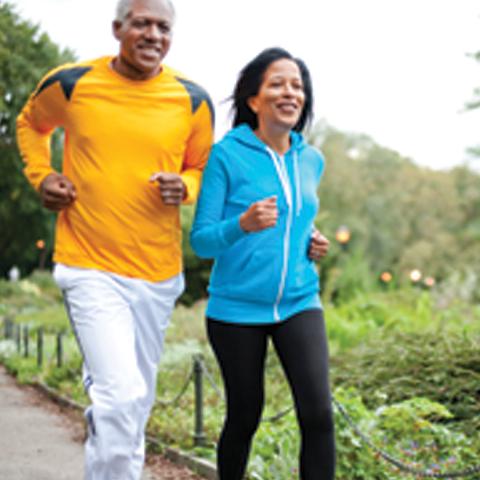Ah, it’s summertime! For many of us, that means swimming at the local pool, hiking in the mountains, walking in the park or spending the day in the garden. It can also mean sunburns and injury if you aren’t careful. Here are a few tips to get you through the summer safely.
- Give 10%. If you hibernated all winter, going on a three-hour hike on the first day of summer might not be the best idea. To avoid injury, ramp up your activity level slowly—by about 10% each week.
- Protect your feet. Walking is great exercise during the summer. If you plan to walk a lot, invest in a good pair of walking shoes with flexible soles and good heel and arch support. And don’t forget to stretch before and after.
- Dress to be cool. In warm weather, wear light-colored, moisture-wick clothing. Lightweight, breathable fabrics leave you cooler and drier because they pull moisture away from your skin. A hat or visor can also protect you from the sun and keep you cool.
- Drink up. In hot weather, your body can lose up to a quart of water an hour. Drink water before, during and after you exercise.
- Garden safely. With all the lifting, twisting and bending, gardening can be good exercise. To avoid overusing muscles on one side of your body when doing repetitive tasks such as raking, switch sides often. Also protect your back with long-handled tools (so you don’t have to stoop as much).
- Avoid peak hours. Enjoy the outdoors in the morning or evening to avoid intense mid-day heat and sun. If you need to, split your workout so you get part done in the morning and part done in the evening. Or simply move your workout indoors during peak sun hours.
- Watch out for heat stroke. With our summers getting hotter and hotter, it’s a good idea to know how to recognize heat stroke. Symptoms appear rapidly. Watch for very hot and dry skin (no sweat), dizziness, nausea, confusion and unconsciousness. If you suspect someone has heat stroke, move him or her to a cool area or immerse him or her in cool water (or pour it over him/her) to lower the body temperature as quickly as possible. Seek medical attention immediately.
- Recognize exhaustion. When out swimming, boating or enjoying other strenuous summer activities, take notice if you, or others around you, are starting to suffer fatigue that could endanger you or others. Exhaustion could lead to injury or worse.
- Try something new. There are so many ways to get moving this summer. If it’s too hot to walk, try swimming. If your bike has a flat, toss the Frisbee with your kids at the park. You might find a new activity you love, and you’ll avoid injuries that can come with repetitive use.
For more on summer safety and wellness, visit the Employee Assistance Program website and search key word “summer”.
Published: June 2013




